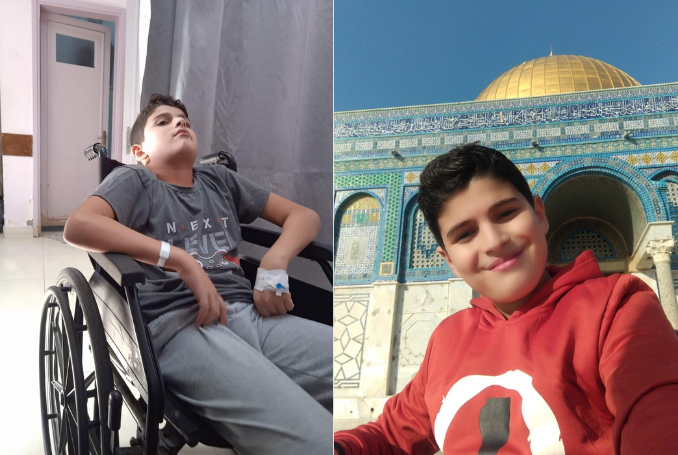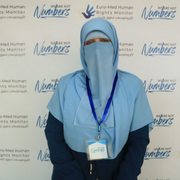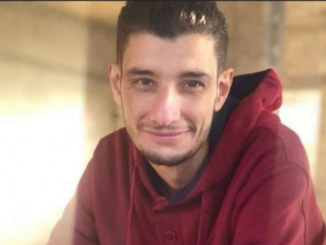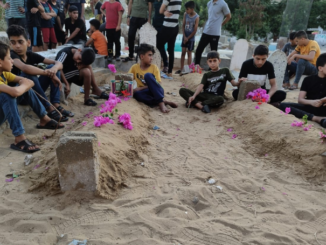
Muhammad Zaqout was always an active, energetic, and bright 11-year-old boy. He was a 7th-grade student at an UNRWA-run School in Gaza. He lived with his family, his parents, two brothers, and five sisters.
“His life was filled with the activities of young children,” Muhammad’s sister, Eman, age 22, told The Palestine Chronicle. “Muhammad used to wake up like any child in Gaza, take his breakfast and his books, and go to school..”
Eman smiles as she speaks about her little brother. “Muhammad loved to eat Maftoul (Palestinian couscous), and he was always joking and playing ball with his friends,”
But things changed. “Muhammad’s life was very normal before he contracted the Guillain-Barre virus, which happened quite suddenly,” Eman continued. “One moment he was playing football at school and the next moment he fell unconscious and was taken to the hospital immediately.”
The crimes of Israel’s occupation and siege of Gaza take many forms and often target the most vulnerable and innocent of Palestinians, like young Muhammad.
In the beginning, when Muhammad was rushed to the hospital for urgent treatment, the doctors thought that his condition was psychological, caused by the continuous stress and pressure experienced by the children of Gaza. This diagnosis was hardly far-fetched, after all, children in Gaza grow up witnessing wars, massacres, and military raids against their families, friends, and communities.
However, the greatest shock for Muhammad, and everyone around him, came when he finally gained consciousness, only to realize that he could no longer feel his legs. He was paralyzed in his lower half, with sharp pain all over his upper body.
Eventually, Muhammad was diagnosed with a severe form of Guillain-Barre Syndrome, which needed medical attention and fast.
Guillain-Barre syndrome is a serious neurological condition that causes the patient’s own immune system to harm their body’s nerves. In its most severe form, this illness can cause paralysis. Immediate hospitalization is required before the symptoms get worse. The sooner appropriate treatment starts, the more potential there is for recovery. But this is not always possible in a place like Gaza, which has been under a hermetic Israeli siege for nearly two decades.
Muhammad’s family understood that they needed to take action quickly to protect their son from permanent paralysis. Unfortunately, the hospital in Gaza suffered from years of military blockade and poor funding just like any other institution in the besieged Strip.
Therefore, the family was forced to leave the hospital and seek treatment at a private clinic where a doctor prescribed cortisone cream which, he explained, “might cure him.” The doctor, however, advised the family that Muhammad needed to immediately travel to Ramallah, in the Occupied West Bank, for treatment in order to prevent permanent damage to his young, and frail body.
Ramallah is only one hour drive away from Gaza. However, it took Muhammad months to arrive.
Urgent Medical Treatment Under Siege
The cortisone cream did not work. Muhammad’s family was left grappling with their next step of how to reach Ramallah. How to cross the Israeli military checkpoints? How to escape this siege?
These questions are unfamiliar to most patients around the world. For Palestinian patients, especially in Gaza, however, it is the everyday reality.
Muhammad’s doctor wrote a referral for treatment at the H Clinic in Ramallah. The doctor emphasized that the treatment was urgent before so that the boy’s health may not worsen. However, for Palestinians like Muhammad, the power to treat a patient does not lie in the hands of the doctor, but in the hands of Israeli soldiers at military crossings and checkpoints.
Saving My Son
Muhammad’s family immediately requested Israel’s permission to travel to Ramallah with their son. They were met with an immediate refusal from the Israeli military, which claimed that the family did not show up for an interview. But no interview was ever scheduled; if it was, the family was not informed.
Finally, Muhammed left the hospital and returned home, in a wheelchair.
Muhammad’s parents submitted a second request, especially when the boy started to experience irregular and rapid heartbeats and difficulty breathing, all symptoms of Guillain-Barre Syndrome that could have been prevented with timely and proper medical treatment.
Muhammad’s mother, Najlaa, carefully prepared a travel bag with warm clothes and blankets, as well as the necessary cards and some money. She was determined to get her son to the hospital in Ramallah.
Upon her arrival at the military checkpoint, the Israeli occupation soldiers denied her access. No reason was given. Najlaa returned home, disappointed but not defeated.
After three rejections from the Israeli military, Muhammad’s parents submitted a fourth request to travel as a last hope for the possibility of their child being able to walk again. This time, a permit was granted. By then, the boy’s health had deteriorated even further.
“By the time the military approved my request for treatment, I was feeling severe pain in my feet and I could barely move my legs,” Muhammad told the Palestine Chronicle. “I had chronic pain in my stomach and had a very hard time breathing. I could not sleep and I was missing so much school. My parents and family were very depressed and always stressed. My condition was much worse than when I first became sick.”
A Temporary Release from Prison
Muhammad described his trip to Ramallah as a temporary release from prison.
“Gaza is surrounded by all sides with soldiers and checkpoints. All of the Israeli soldiers face their guns at us. It is suffocating,” he said.
“We waited at the checkpoint crossing for a long time, and the soldiers were searching everyone, children and adults, even I was searched in my wheelchair. The annoying thing is that they search us in our own land while they are the intruders, not us.”
Muhammad’s brief escape from the “world’s largest open-air prison” meant that he could do something most Gazans can only dream of. He visited the Occupied city of Jerusalem.
“My joy at seeing Al-Aqsa Mosque was great. I prayed there despite the intimidating presence of Israeli soldiers, who were at every gate watching us.”
Muhammad returned to Gaza and is now undergoing physiotherapy in the Hamad Hospital. His condition is slowly improving and he is excited to be himself again, though he still uses a walking stick. Despite his harrowing journey, he insists on living a normal life.
Muhammad is also back at school. He told the Palestine Chronicle that he dreams of one day becoming a teacher.

– Nada Al Kahlout is a Gaza-based freelance writer. We Are Not Numbers contributed this article to The Palestine Chronicle.







